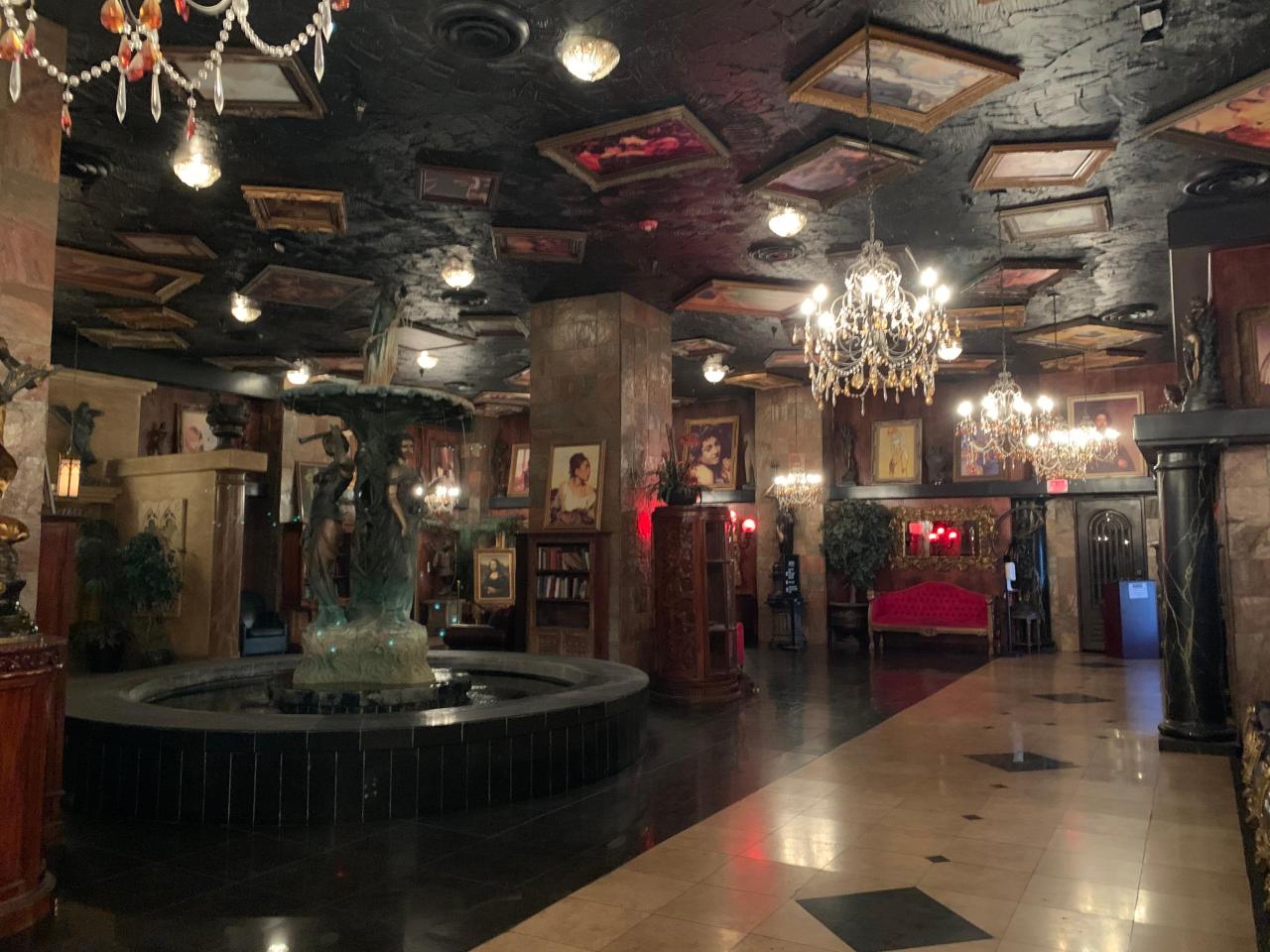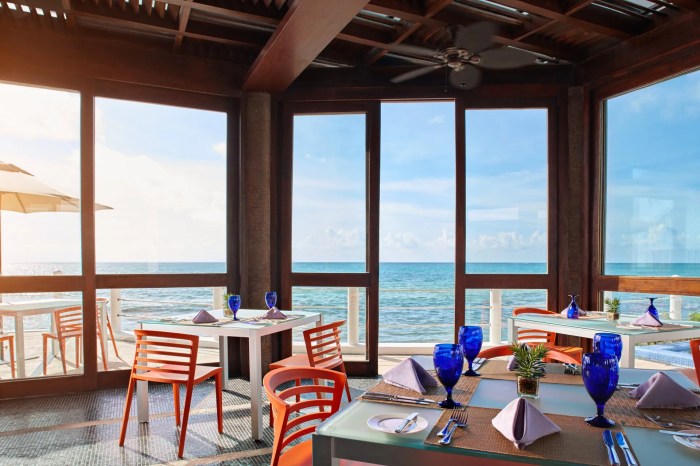Hotels with local artisan markets offer a unique opportunity to immerse yourself in the vibrant culture of your destination while enjoying the comforts of a cozy stay. Exploring these markets enriches travel experiences, allowing guests to discover handcrafted products that reflect local heritage and artistry. From intricate textiles to artisanal foods, these markets not only serve as a treasure trove of unique finds but also support local economies by uplifting talented artisans and their crafts.
As travelers seek more authentic experiences, staying near these artisan markets creates a deeper connection to the local community. The convenience of proximity allows guests to engage daily with the sights, sounds, and tastes that define the essence of the area. Whether it’s sampling traditional foods or purchasing unique souvenirs, the charm of artisan markets enhances each guest’s journey in meaningful ways.
Understanding Local Artisan Markets
Local artisan markets serve as vibrant hubs that encapsulate the essence of a community’s culture and creativity. These markets offer unique, handmade goods that tell stories of local heritage and craftsmanship. Travelers often find that visiting these markets enriches their experience, providing an authentic glimpse into the destination’s traditions and lifestyles.The significance of local artisan markets extends beyond mere shopping; they empower artisans and foster economic growth within the community.
By purchasing directly from local makers, travelers contribute to sustaining traditional crafts and supporting families who rely on these businesses for their livelihoods.
Popular Items in Artisan Markets
Local artisan markets feature an array of distinctive items that reflect the locality’s culture and craftsmanship. Common offerings include:
- Handcrafted jewelry, often made from locally sourced materials, which showcases the artistic flair of local artisans.
- Textiles such as handwoven fabrics and garments that often incorporate traditional patterns and techniques.
- Pottery and ceramics that embody the unique designs and styles of the region, often inspired by nature or local history.
- Artisanal food products including jams, sauces, and handmade chocolates that allow travelers to taste the local flavors.
- Woodwork crafted from native trees, ranging from decorative pieces to functional items like utensils and furniture.
Each item not only represents aesthetic beauty but also serves as a tangible connection to the culture and heritage of the area. These markets often reflect the diverse skills and traditions passed down through generations, making every purchase significant.
Support for Local Economies and Artisans
Local artisan markets play a crucial role in bolstering local economies and providing sustainable livelihoods for artisans. By facilitating direct sales, these markets help artisans retain a larger share of profits compared to traditional retail channels, which often skim off significant margins.The economic impact of these markets can be substantial. For example, in communities where artisan markets thrive, studies have shown that they can contribute to job creation, attract tourism, and preserve local culture.
When travelers invest in handmade goods, they not only promote craft industries but also help maintain traditional methods that might otherwise fade away.
The revival of local artisan markets not only enriches the travel experience but also empowers communities and preserves cultural heritage.
Best Hotels Located Near Artisan Markets

Staying near artisan markets provides an exceptional opportunity to immerse oneself in local culture and craftsmanship. Guests can enjoy unique experiences, from exploring handcrafted goods to savoring local flavors. The hotels listed below not only offer comfort and convenience but also enhance the overall experience by connecting guests to the vibrant local communities. One of the key factors for travelers is the proximity of their accommodations to artisan markets.
When planning your visit to the enchanting city, don’t forget to check out the available hotels in Amsterdam that suit your style and budget. Many of these establishments provide unique experiences, blending comfort and local culture seamlessly. For those who can’t bear to leave their pets behind, consider the options for pet-friendly hotel bookings that ensure a delightful trip for all family members.
Choosing a hotel that is strategically located can significantly enrich the stay, allowing guests to easily explore local artistry and traditions. The following hotels are highly rated for their exceptional service and unique amenities geared towards market visitors.
Top-Rated Hotels Near Artisan Markets
The following establishments are not just places to rest; they are gateways to local culture, making them ideal for visitors who want to explore artisan markets. Each hotel offers distinctive features that enhance the guest experience.
- The Artisan Hotel
-Located a stone’s throw from the bustling artisan market, this boutique hotel features rooms decorated with local artwork. Guests can enjoy complimentary guided tours to the market, providing insights into the artisans’ crafts and stories. - Market Street Inn
-This charming inn is known for its cozy atmosphere and personalized service. Amenities include a local art corner within the lobby and cooking classes that highlight traditional dishes served at nearby market stalls. - Cultural Haven Suites
-Offering spacious suites adorned with handcrafted textiles, this hotel emphasizes local culture. Guests can partake in evening artisan demonstrations and enjoy complimentary breakfast featuring ingredients sourced from the market. - Heritage Lodge
-Nestled near a vibrant artisan market, Heritage Lodge provides guests with unique cultural experiences, such as workshops with local artisans. The hotel also features a restaurant that incorporates market-fresh ingredients into its menu. - The Gallery Hotel
-Just steps from the artisan market, this hotel hosts rotating exhibitions of local artists’ works. Guests receive exclusive discounts at market stalls and can book guided tours to learn more about the artisans’ techniques.
Each of these hotels enhances the experience of visiting artisan markets by offering amenities that cater specifically to market visitors. From workshops and guided market tours to locally inspired dining experiences, these hotels ensure that guests can fully engage with and appreciate the culture surrounding them.
“Staying close to artisan markets not only provides convenience but also enriches the travel experience through cultural immersion and direct engagement with local craftsmanship.”
The commitment of these hotels to promote local artisans and culture creates a unique synergy between hospitality and community, offering travelers an unforgettable experience that transcends the ordinary.
If you’re looking to travel with your furry friend, exploring pet-friendly hotel bookings can make all the difference. These accommodations ensure that both you and your pet have a comfortable stay without leaving anyone behind. This consideration becomes even more exciting when planning a trip to vibrant destinations like Amsterdam, where you can find various hotels in Amsterdam that welcome your pets with open arms.
Exploring Artisan Market Offerings
Artisan markets are vibrant reflections of local culture, showcasing a rich tapestry of craftsmanship that tells the unique stories of the artisans behind the creations. From handwoven textiles to intricate pottery, these markets offer an array of products that not only serve as souvenirs but also carry the heritage and traditions of the community. Engaging with these offerings provides insight into the local way of life and the artistic expressions that flourish within it.The diverse range of crafts available at artisan markets is a testament to the creativity and skill of local artisans.
These markets typically feature handmade goods that might include ceramics, textiles, jewelry, woodwork, and artisanal food products. Each piece often embodies the local culture and traditions, allowing visitors to take home a tangible piece of their travel experience.
Types of Crafts and Products
Artisan markets are a treasure trove of unique products that reflect the local culture and artistry. Here are some notable categories of offerings you might encounter:
- Ceramics: Handcrafted pottery, including mugs, plates, and decorative items, often showcasing intricate designs that represent local mythology or nature.
- Textiles: Locally sourced materials transformed into beautiful clothing, scarves, and home decor items, frequently featuring traditional patterns and techniques.
- Jewelry: Artisan-crafted jewelry made from local materials, including gemstones and metals, often telling a story of the region’s history and artistry.
- Woodwork: Skillful carpentry producing functional items like furniture, kitchenware, and decorative art, usually highlighting sustainable practices.
- Artisanal Foods: Locally made jams, sauces, and baked goods that offer a taste of the region’s culinary heritage, often using seasonal and native ingredients.
Notable Artisans and Their Crafts
Among the artisans, several stand out with their remarkable skills and commitment to preserving their craft. For instance, Maria, a ceramicist from Oaxaca, Mexico, creates breathtakingly vibrant pottery inspired by the local landscape and indigenous patterns. Her work not only offers beauty but also serves to educate visitors about the region’s rich history.Another notable figure is Jamal, a textile artist from Morocco, who weaves intricate rugs that reflect traditional Berber designs.
His pieces are not just floor coverings; they are narratives of his ancestors and the natural world around them, each telling a unique story.
Seasonal Specialties and Cultural Significance
Artisan markets also showcase seasonal specialties that are deeply rooted in cultural significance. For example, during the winter months, many markets feature locally made ornaments and crafts that celebrate the holiday season. Spring brings an influx of fresh produce and floral designs, with artisans crafting items that reflect the renewal of nature, such as handmade flower pots and garden decorations.
Each season presents a different opportunity for artisans to express their creativity, often aligned with local festivals that celebrate the cycles of life and nature.
“Artisan markets are not just about buying and selling; they are a living celebration of culture, creativity, and community.”
Planning Visits to Artisan Markets from Hotels: Hotels With Local Artisan Markets

Visiting artisan markets provides a unique opportunity for hotel guests to immerse themselves in local culture, taste regional delicacies, and discover handmade crafts. However, successfully navigating these markets requires careful planning to ensure a rich experience. This guide offers essential details on the best times to visit artisan markets, a curated itinerary for exploring multiple markets, and transportation options for easy access.
Best Times to Visit Artisan Markets
Understanding the peak times for visiting artisan markets enhances the overall experience. Many markets operate on specific days of the week, often influenced by local customs and seasonal trends. Typically, the best times to visit these markets are during the early morning or late afternoon when vendors are fully stocked and crowds are manageable. To facilitate planning, here are some key points to consider regarding market schedules:
- Most artisan markets are open on weekends, with some offering evening events during peak tourist seasons.
- Midweek visits may feature lower crowds, allowing for a more personalized shopping experience.
- Seasonal markets can vary; local calendars or hotel concierges often provide updated information on special events.
Itinerary for Visiting Multiple Markets
To maximize the experience of visiting local artisan markets, a well-structured itinerary can be immensely helpful. Starting from a central hotel location, guests can experience several markets in a single day. Below is a suggested itinerary that includes various artisan markets, ensuring a diverse exploration of local craftsmanship and culinary delights. Sample Itinerary:
Morning
Visit the Downtown Artisan Market (9 AM – 12 PM) – Explore handmade crafts, local produce, and enjoy a breakfast from specialty food vendors.
Lunch Break
Enjoy a nearby cafe or food stall with local specialties.
Afternoon
Head to the Riverfront Market (1 PM – 3 PM) – Engage with local artisans, pick up unique souvenirs, and experience live demonstrations.
Evening
Wrap up at the Night Bazaar (5 PM – 9 PM) – Experience the vibrant atmosphere filled with colorful lights, live music, and a wide array of food options.
Transportation Options to Artisan Markets, Hotels with local artisan markets
Efficient transportation is key to ensuring smooth visits to various artisan markets. Guests should consider the following transportation options available from their hotels:
Walking
For markets located nearby, walking can be a delightful way to explore the area, offering spontaneous opportunities to discover hidden gems along the route.
Public Transport
Many cities provide reliable public transit options, such as buses or trams, that connect major hotels to artisan markets. Checking schedules and routes in advance helps plan accordingly.
Ride-Sharing Services
Apps like Uber or Lyft are widely used, providing convenient and direct transport to any market location within the city.
Bicycle Rentals
For those looking for an active option, renting a bicycle can be an enjoyable way to navigate the city’s streets while reaching multiple markets.By planning visits thoughtfully and utilizing available transportation options, guests can fully appreciate the rich offerings of local artisan markets while enjoying the comforts of their hotel stay.
Impact of Artisan Markets on Hotel Stays

Staying near artisan markets significantly enhances the travel experience by offering guests a unique and immersive opportunity to engage with local culture and craftsmanship. These markets serve as vibrant hubs of creativity, where visitors can discover handmade goods, sample local culinary delights, and interact with artisans, all contributing to a richer understanding of the destination. The convenience of proximity to these markets can transform a standard hotel stay into a memorable adventure.The presence of artisan markets near hotels often leads to an increase in guest satisfaction.
Travelers appreciate the ease of access to unique shopping experiences that showcase local artistry and culture. In fact, studies have shown that hotels situated close to these markets tend to receive higher ratings compared to those that are not. A survey conducted by the Hotel Association revealed that guests staying within a mile of artisan markets rated their overall satisfaction at 9.2 out of 10, while those further away averaged only 7.5.
This demonstrates a clear preference for accommodations that offer immediate access to local experiences.
Guest Testimonials and Anecdotes
The impact of artisan markets on hotel stays is evident in the testimonials shared by guests. Many travelers recount their delightful experiences at these markets during their visits, emphasizing how it enriched their journey.
“Staying at the hotel just a block away from the artisan market was the highlight of our trip! We explored the stalls every morning, chatting with artists and buying unique souvenirs. It made our visit feel authentic and personal.”
Another guest shared,
“I found a beautiful piece of pottery that I now cherish as a memory of my trip. The convenience of being so close to the market allowed us to go back multiple times, and we discovered something new each visit.”
These anecdotes highlight how proximity to artisan markets not only facilitates easy access but also fosters memorable interactions with local culture, leading to an enriched travel experience that resonates long after the journey concludes. In essence, hotels near artisan markets provide not just a place to stay but a gateway to the heart of the local community.